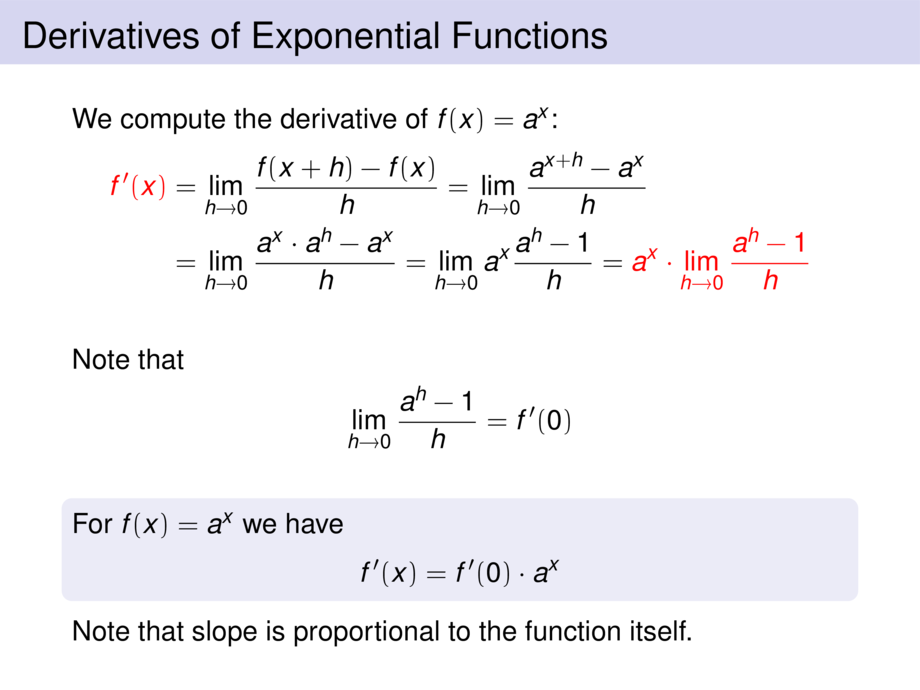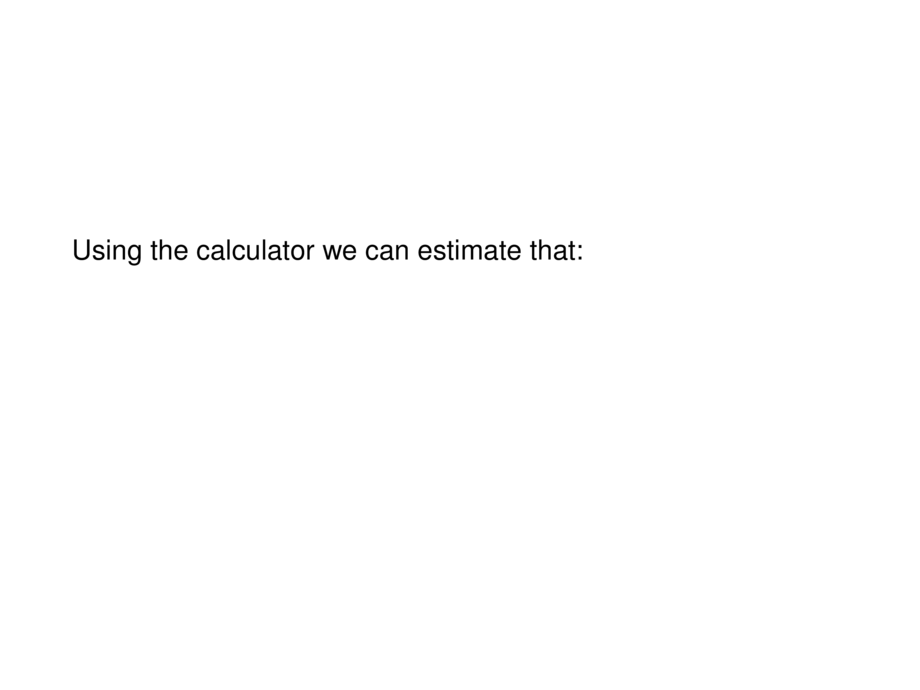



































































































65/81
\begin{frame}
\frametitle{Derivatives of Exponential Functions}
\begin{block}{}
For $f(x) = a^x$ we have
\begin{talign}
f'(x) = f'(0) \cdot a^x
\end{talign}
\end{block}
\pause\medskip
Using the calculator we can estimate that:
\begin{talign}
\mpause[1]{\text{for $a = 2$}} && \mpause[1]{f'(0) = \lim_{h \to 0} \frac{2^h - 1}{h} \approx 0.69} \\
\mpause[2]{\text{for $a = 3$}} && \mpause[2]{f'(0) = \lim_{h \to 0} \frac{3^h - 1}{h} \approx 1.10}
\end{talign}
\pause\pause\pause\medskip
There is a number $a$ between $2$ and $3$ such that $f'(0) = 1$:\pause
\begin{block}{}
\begin{malign}
\text{$e$ is the number such that} \quad \lim_{h\to 0}\frac{e^h - 1}{h} = 1
\end{malign}
\end{block}
\pause
The function $e^x$ is the only exponential with slope $1$ at $(0,1)$.
\end{frame}

